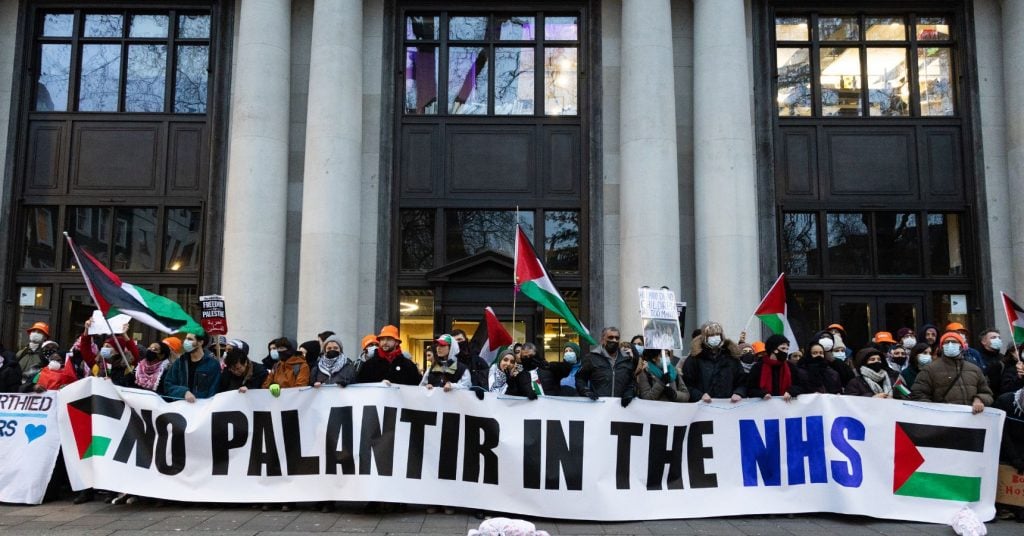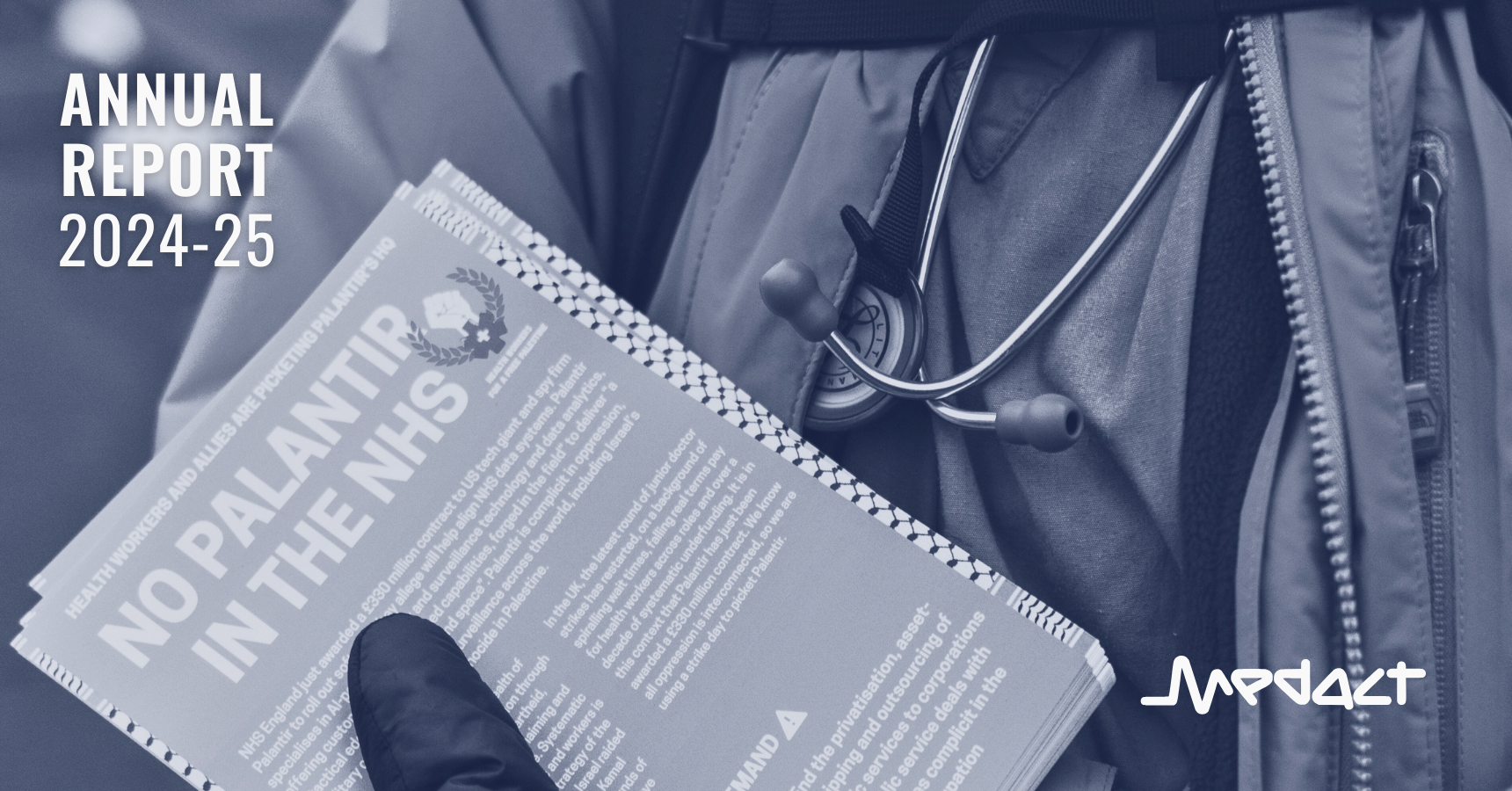
This is the fourth article published as part of our Annual Report 2024-25
On 7th October 2023, Israel launched its deadliest military campaign on Gaza. Over the months that followed, bombs fell on hospitals, ambulances were targeted and thousands of health workers and patients were killed. In some cases, entire medical facilities were levelled. In others, doctors were shot dead as they worked.
This is not only a genocide, but a destruction of a health system and any hope of life. And as we are entering a new era of organising – built on the principles of health justice, collective care and solidarity – we will continue to campaign for Palestinian liberation.
Health justice is not neutral
Hospitals and clinics are meant to be places of care, but in Gaza, they have become sites of fear, grief and death. There, Israeli forces have damaged or destroyed at least 94% of hospitals. Oxygen plants are being bombed. Ambulances hit by airstrikes. Patients on ventilators are suffocating after power goes out. All of these actions are deliberate and part of Israel’s war strategy.
For us, this matters because health everywhere is a human right. Health justice is not about simply expanding access to services – it’s about dismantling the institutions that make some people disposable in the first place. That includes dismantling the institutions of war, surveillance, borders and occupation.
The same logic that allows Israel to destroy Palestinian hospitals is the logic that criminalises migrants in the UK, that surveils Black and Brown patients and that turns health workers into agents of the states. These struggles are connected.
Collective struggle births collective action
Global solidarity is not symbolic – it’s action. The recent Global Sumud Flotilla, launched by civil society to deliver aid to Gaza and challenge the illegal blockade, has been met with attacks from Israel. The flotilla represents what governments have failed to do: break the siege, uphold international law and stand for human rights of Palestinians. This same spirit of resistance is alive here in the UK, where health workers are taking action to confront complicity of our own institutions.
Across the UK, thousands of health workers have refused to be complicit in the genocide. Many have walked out of hospitals in protest. Others have been writing letters, passing union motions, joining freedom flotillas and speaking out in defiance of the silence that surrounds Palestine in public health institutions.
But one of the most significant fronts of resistance has been the No Palantir in the NHS campaign, which Medact is proud to support alongside Health Workers for a Free Palestine, Corporate Watch and Just Treatment. The campaign is a coalition of health workers, patients and campaigners pushing back against the UK government’s decision to hand over NHS data to Palantir Technologies.
Palantir is not just any tech company. It is a US spy intelligence company which provides technology for US Immigration and Customs Enforcement (ICE), the UK Ministry of Defence and the Israeli military.
And yet, in November 2023, it was awarded a £330 million contract with NHS England to create and manage the NHS’s most powerful data infrastructure – the Federated Data Platform (FDP). The contract between NHS England and Palantir has faced increasing opposition since Palantir announced its partnership with the Israeli military to provide advanced AI weaponry for use in military operations, including in Gaza.
In June of this year, thanks to the tireless organising by activists, health workers, patients and trade union members, the British Medical Association (BMA) – the doctor’s union – passed a landmark motion opposing Palantir’s involvement in the NHS. This is a significant step – and a clear signal that health workers are refusing to let tools of surveillance and genocide be embedded in systems of care.
Health workers are drawing a line
Resisting Palantir’s grip on the NHS doesn’t happen just at the national level – it’s a fight many are taking up locally. The success of the FDP rollout depends entirely on whether local NHS trusts adopt it, which means that organising at the local level is one of the most powerful ways to disrupt and sabotage the contract. Whether a trust hasn’t yet signed on or is already using the platform, there are strategic ways to intervene – from demanding transparency, to raising concerns about data ethics and pushing for rollbacks where possible.
The No Palantir in the NHS campaign toolkit offers a step-by-step guide to organising locally, with tools to help health workers, patients and activists build pressure and take action. While technical failures in the rollout have already caused significant issues – and that’s helpful for campaign momentum – we must stay focused on the core issue: Palantir’s involvement is not just a technical risk but a moral and political one. No matter how well the technology might work, Palantir’s role in the Gaza genocide makes their presence in the NHS utterly indefensible.
Saying no to Palantir here is saying no to genocide in Gaza. Resisting Palantir is about refusing our health system to be co-opted by companies that profit from war and genocide. It’s about stopping the militarisation of healthcare and protecting patients and communities from becoming targets of surveillance.
How to stand in solidarity with Palestine
In November and July, hundreds of health workers attended a welcome call to join the No Palantir in the NHS campaign. Many more are already taking action and organising in the communities, hospitals and ICBs. You can start by using the No Palantir in the NHS open letter template, adapting it to your local trust or hospital, and gathering signatures from fellow health workers to send to decision-makers. Patients and members of the public can also make their voices heard by submitting responses from trusts to the Just Treatment tool or leafleting outside hospitals with local Palestine solidarity groups.
You can speak with your local union reps and ask them to support the campaign by raising it at meetings or even exploring targeted action, such as refusing to work on the FDP. There’s also work to be done with royal colleges, ICBs, local councils and MPs – all of which can play a role in stopping this rollout. And if you are wanting to express solidarity with Palestine, the British Islamic Medical Association has published clear guidelines on how to do so safely and confidently.
As Health Workers for a Free Palestine powerfully remind us: “Businesses that trade in death should have no place in our healthcare system.” In stopping Palantir here, we not only resist surveillance and privatisation, but we push back against a system that profits from violence.
Medact Annual Report 2024-25
-
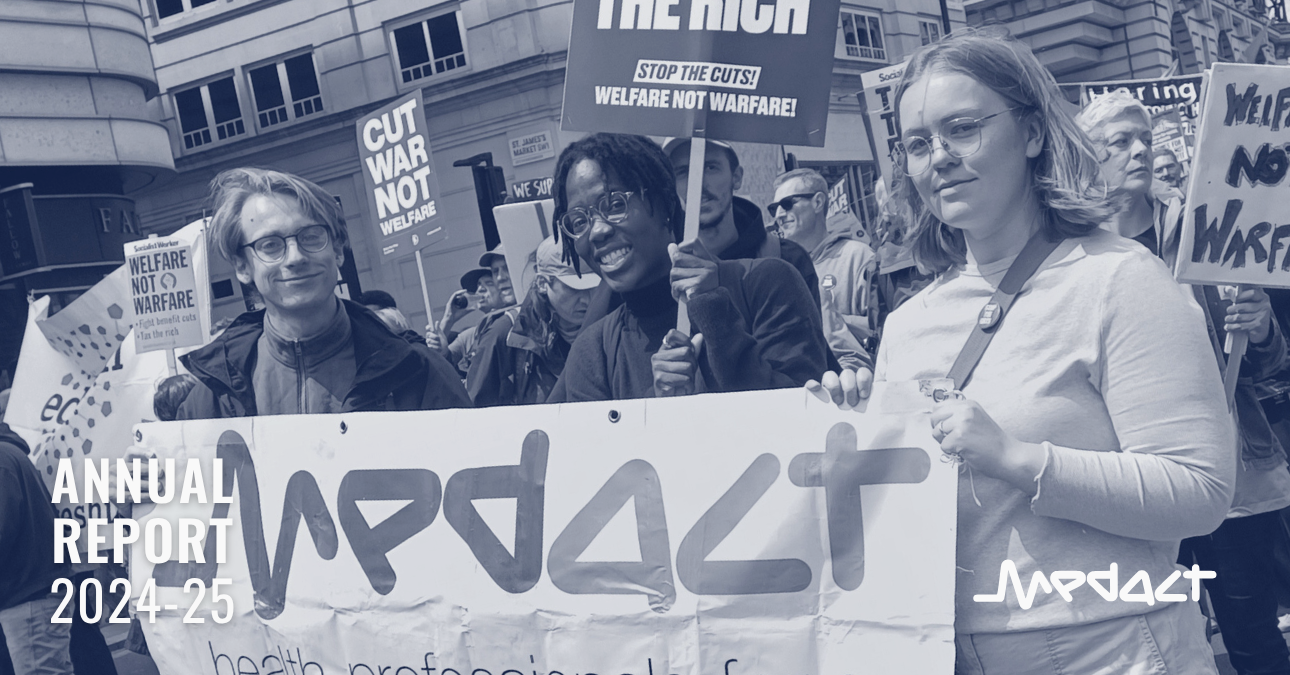
Leading the change from below – building a countervailing power for health justice
-
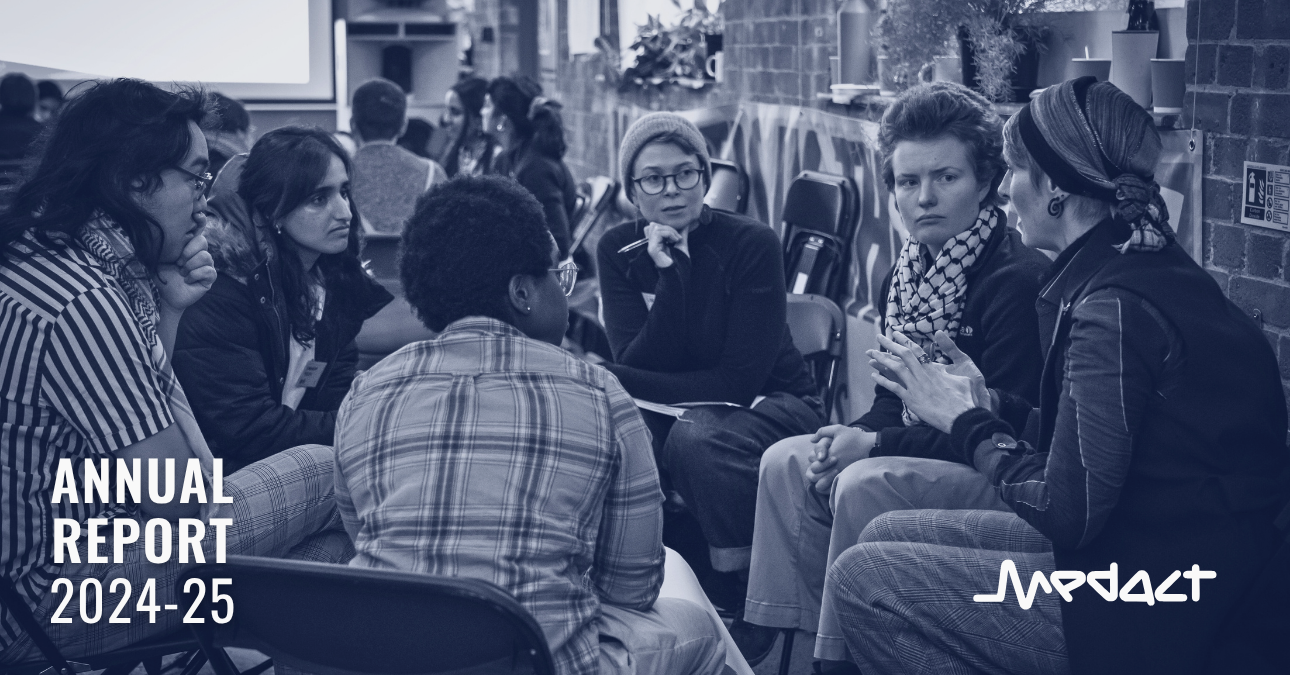
A growing movement for health justice
-

Gaza under siege, health solidarity across the globe
-
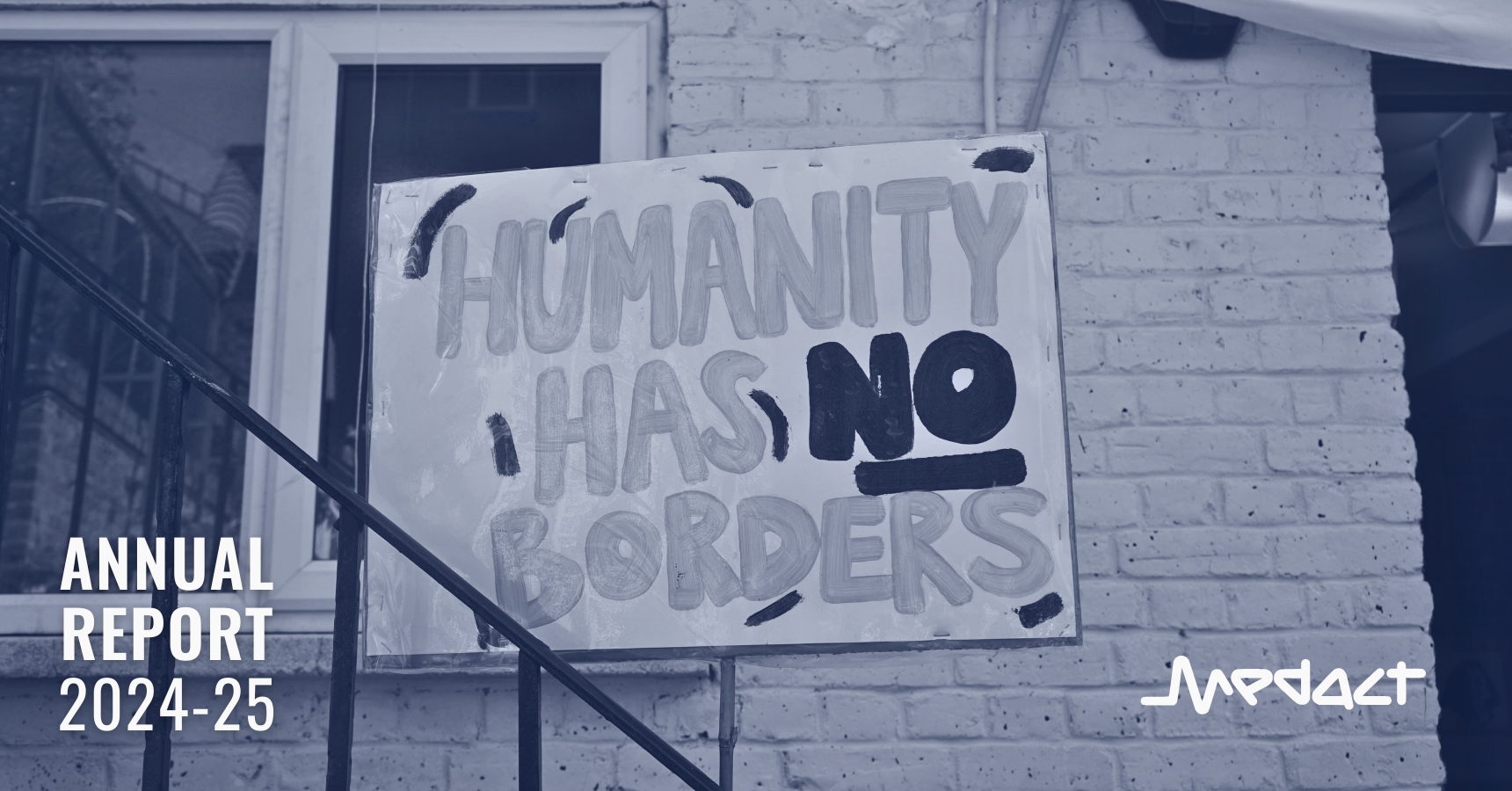
Towards abolishing borders and violence in healthcare
-
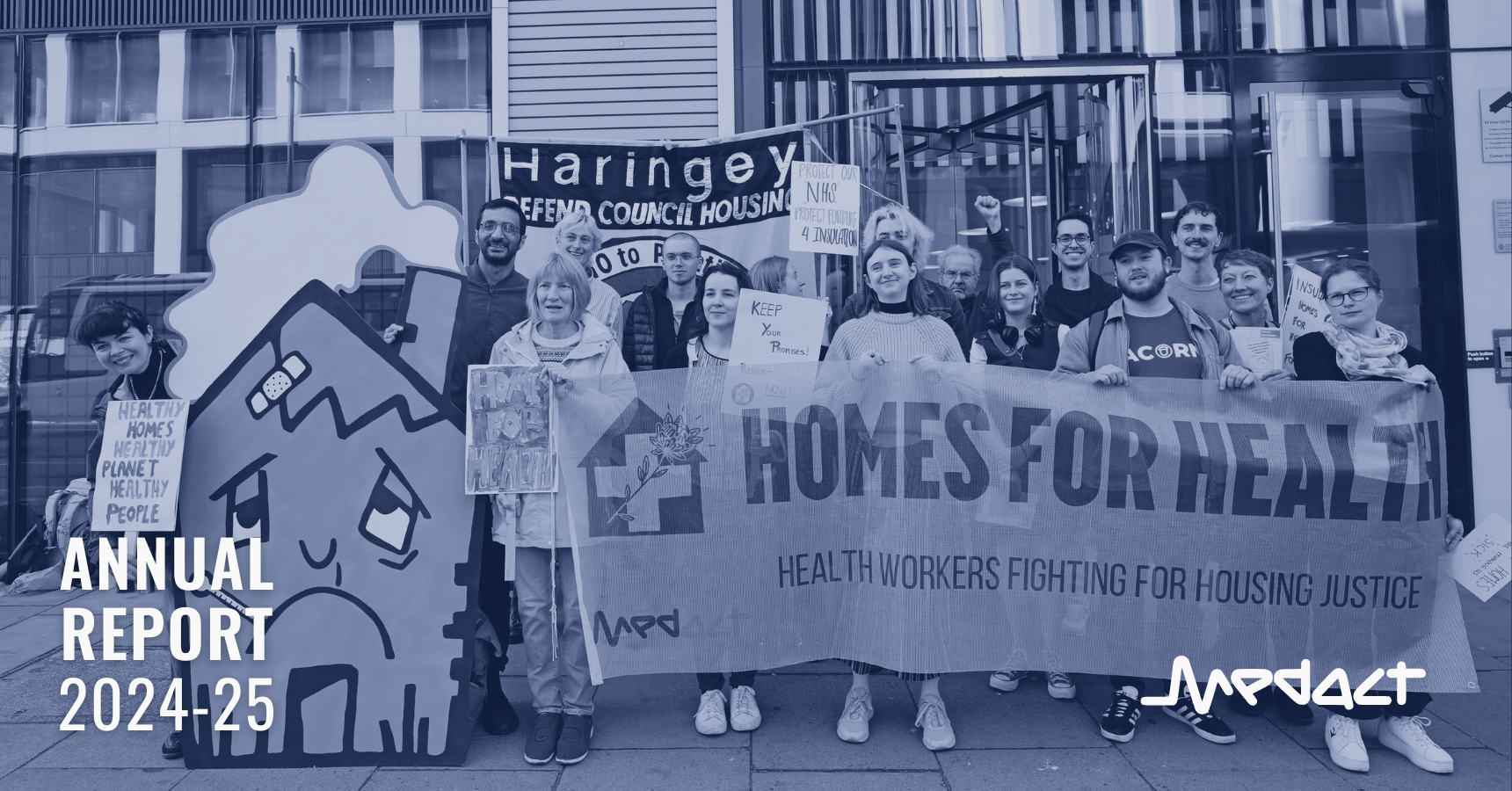
Climate justice means housing and energy justice
-
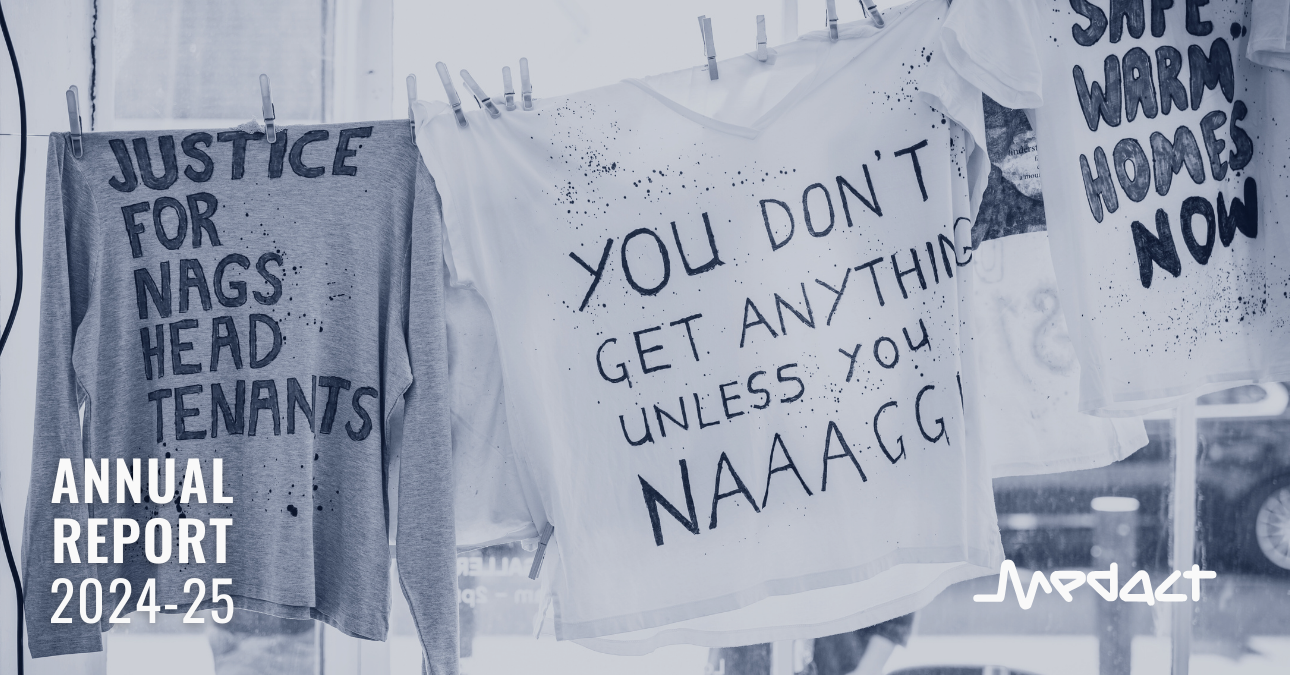
Homes for Health: How we win Health Justice

